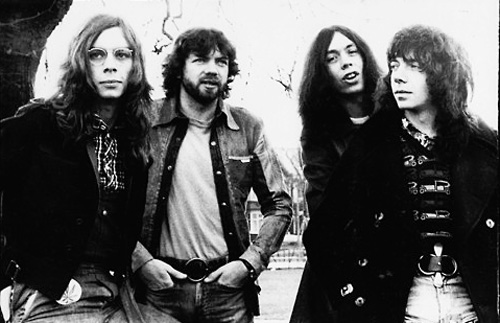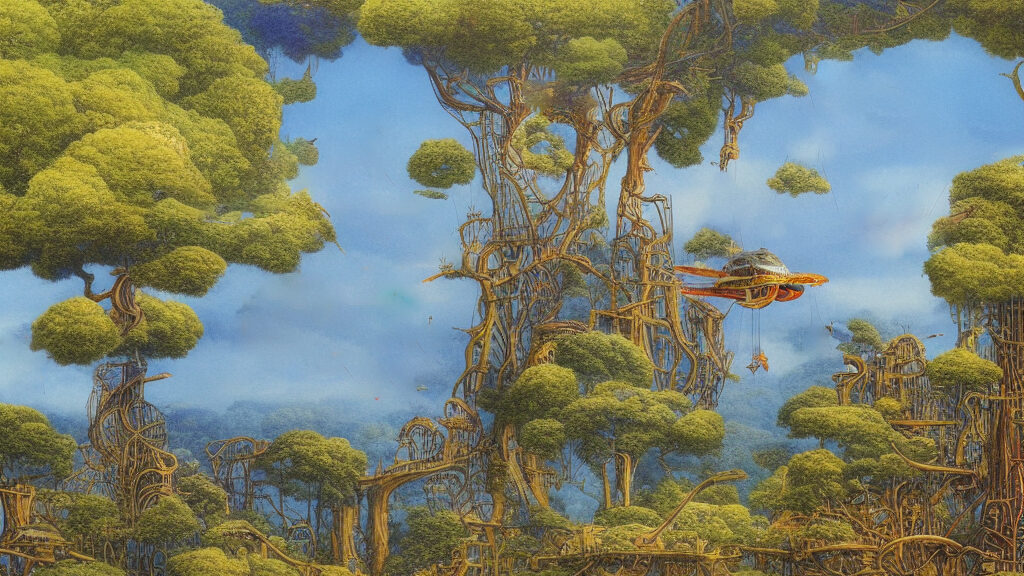
Camel was formed in 1971, when three former members of blues rock band The Brew, guitarist Andrew Latimer, drummer Andy Ward and bassist Doug Ferguson, placed an ad in British rock magazine The Melody Maker.
Peter Bardens responded to the ad. Not long after they agreed on a new name, Camel. Camel played their first concert at Waltham Forest Technical College supporting Wishbone Ash in December 1971.
In 1972, MCA signed the band. They recorded a self-titled album, Camel, with material by Latimer and Bardens. MCA’s lack of enthusiasm led Camel to move to Decca Records’ subsidiary Deram Records, which at the time was the home for various emerging progressive rock bands. Camel had a long association with Decca which produced the group’s best loved and most significant work, including Mirage, The Snow Goose, Moonmadness, Rain Dances, Breathless, I Can See Your House From Here and Nude.
In early 1977, bassist Doug Ferguson left Camel. He was replaced by Richard Sinclair, a former member of Caravan. The band also featured Mel Collins on flute and saxophones. He preferred the independent role of session man and never joined the band as a full member.
Latimer and Bardens had major disagreements About the musical direction of the band. In 1978, after the album Breathless came out, keyboardist Peter Bardens left the band. Andy Ward and Andrew Latimer took advantage of this opportunity to expand the band. They decided to use two keyboard players. They contacted Richard Sinclair’s cousin Dave Sinclair, and his former bandmate Jan Schelhaas for the 1978 tour to promote Breathless. Things didn’t work out too well and by the end of the tour, Dave Sinclair and Richard Sinclair left Camel.
Impressed by an album by American progressive rock band Happy The Man, in 1979 Andrew Latimer and Andy Ward asked keyboardist Kit Watkins to join the band. They also recruited a reputable bassist named Colin Bass.
The new line-up recorded I Can See Your House From Here. Watkins left Camel shortly before the band entered the studio to record Nude in 1981.
That year was devastating for the band. In mid-1981, Andy Ward succumbed to alcohol and drug abuse and attempted suicide, unsuccessfully to the relief of all. However, Ward was unable to play drums. The band dissolved.
Camel was under contract with Decca and the label asked for another album. Andrew Latimer, the sole surviving member of Camel, went into the studio to record The Single Factor, which was released in 1982. Singer Chris Rainbow and bassist/singer David Paton joined the band. Other musicians who participated in the sessions included Anthony Phillips (former Genesis guitarist), Francis Monkman (Sky), and guest drummers Simon Phillips (The Who, Jeff Beck, Toto), Dave Mattacks (Fairport Convention) and Graham Jarvis (Cliff Richard). Bardens reconciliated with Latimer and made a guest appearance on the album.
In 1983 Andy Latimer contacted Dutch keyboardist, Ton Scherpenzeel, who was a former member of Kayak, one of the leading progressive rock bands in the Netherlands. Both musicians planned the new album, titled Stationary Traveller. The line-up at the time included Ton Scherpenzeel on keyboards, Colin Bass on bass, Andrew Latimer on guitar, flute, vocals; Chris Rainbow on vocals and Paul Burgess on drums.
The live performance video and CD of the Stationary Traveller was released as Pressure Points.
PolyGram took over Decca. Camel and Decca mutually and amicably agreed to end their agreement. Frustrated by lawsuits (which Camel won) and negotiations with record companies to release the new album, Dust and Dreams, Andy Latimer sold his home in the UK and moved to the United States of America in 1988. With proceeds from the sale of his London home, he financed construction of a small studio where he recorded and produced Dust and Dreams.
Latimer decided to go independent and started his own record company, Camel Productions, that released Dust and Dreams. It was a success and this led to some tours.
In 1994, Latimer returned and recorded Harbour of Tears, a tribute to his father, who ha passed away.
In 1998, Camel recorded a live album recorded in Los Angeles, California, titled Coming of Age, released on both video and compact disc.
An album titled ‘Rajaz’ was released in 1999. Keyboardist Ton Scherpenzeel returned to the band. In 2000, Canadian keyboardist Guy LeBlanc and fellow Canadian drummer Denis Clement joined Camel.
A Nod and a Wink came out in In 2002, highlighting Latimer’s flute. The album was dedicated to Camel’s former keyboardist Peter Bardens, who had passed away.
In October 2006 Latimer moved back to the UK. The following year, it was revealed that Andrew Latimer had suffered from a progressive blood disorder. He received treatment but it took him time to recover and regain his strength.
Camel re-recorded and extended The Snow Goose album. This new version came out on November 4, 2013. The lineup in 2013 included Andrew Latimer on guitars, flute, and vocals; Denis Clement on drums, fretless bass, keyboards; Colin Bass on bass and acoustic guitar, vocals; Guy LeBlanc on keyboards and vocals; and Jason Hart on Keyboards, Acoustic Guitar, Vocals.
Discography:
Camel (MCA, 1973)
Mirage (Deram Records, 1974)
The Snow Goose (Deram Records, 1975)
Moonmadness (Deram Records, 1976)
Rain Dances (Deram Records, 1977)
Breathless (Deram Records, 1978)
A Live Record (Deram Records, 1978)
I Can See Your House from Here (Deram Records, 1979)
Nude (Decca, 1981)
The Single Factor (Decca, 1982)
Stationary Traveller (Polygram, 1984)
Dust and Dreams (Camel Productions, 1991)
On the Road 1972 (1992)
Never Let Go (Camel Productions, 1993)
On the Road 1982 (1994)
Harbour of Tears (Camel Productions, 1996)
On the Road 1981 (1997)
Coming of Age (Camel Productions, 1998)
Rajaz (Camel Productions, 1999)
Gods of Light ’73-’75 (2000)
The Paris Collection (2001)
A Nod and a Wink (Camel Productions, 2002)
The Snow Goose (2013), re-recording of 1975 album
Compilation albums
Chameleon – The Best of Camel (1981)
The Collection (1985)
A Compact Compilation (1986)
Landscapes (1991)
Echoes: The Retrospective (1993)
Camel – Master Series, 25th Anniversary Compilation (1997)
Lunar Sea (2001)
Rainbow’s End: An Anthology 1973–1985, boxed set (2010)
website: http://www.camelproductions.com/
